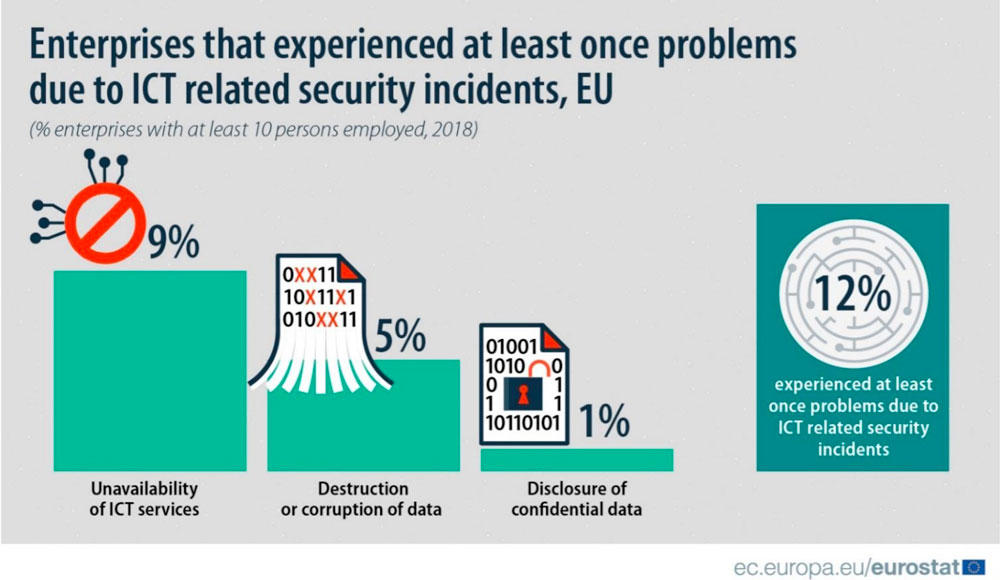Eurostat cyber security threats perception statistics

We are oblivious to real Internet threats
"Threats perception isn’t the only problem, but also most companies perception about appropriate cyber security approach."
European Statistical office, Eurostat, has published interesting data at the beginning of this year about citizens and companies’ perception of cyber security threats and how this influences their behaviour. The findings suggest that average citizens have limited understanding of Cybersecurity threats.
From the extensive research, it turns out that out of EU countries, Slovaks have the least confidence towards state’s electronic services and public sector’s communication. Due to concerns about security in regards to Admin departments, 19 % of Slovaks refuse to communicate and use their services. Whereas the EU’s average is about 8 %.
Eurostat doesn’t state the reasons why Slovaks consider using eGovernment services as risk-bearing, although in other European countries, this is the opposite.
Maybe, this can be due to mischievous reputation of using electronic services in Slovak public sector. Moreover, a media coverage about the risk of hacking electronic ID cards could be a contributing factor to this statistic. Perhaps also, the respondents outcome has been provoked by unsatisfying practical experiences with function, stability and counter-intuitive services.
Whatever the reasons, attributing the biggest risk to eGovernment services among all other activities, has not been justified. The same applies to online banking services avoidance due to security threats, as according to Eurostat, Slovaks exceeds the average of EU.
Companies measures are insufficient
Eurostat has also brought interesting stats in terms of global companies regarding to cyber security. Around 1 in 10 (12%) from 160,000 correspondents recalled at least one problem regarding security incidents. In Sweden, 35 % companies have reported security problems, which is the highest number in EU.
According to Eurostat, 93 % of EU companies has at least one security measure in place. Though, this is usually an antivirus or firewall and are not sufficient enough against the cyber security threats.
Based on other stats, cyber security disruption has caused most frequent issues with service availability last year in European companies. These can be customer web services, but also performance-based services at workplace.
In the last 12 months, 9 % of European companies have reported problems with services outage to Eurostat. These are usually caused by DDoS attacks, or ransomware attacks, in some cases, wrong infrastructure and apps configuration. These events are unavoidable without having more advanced devices able to see into data traffic and uncover similar events.



